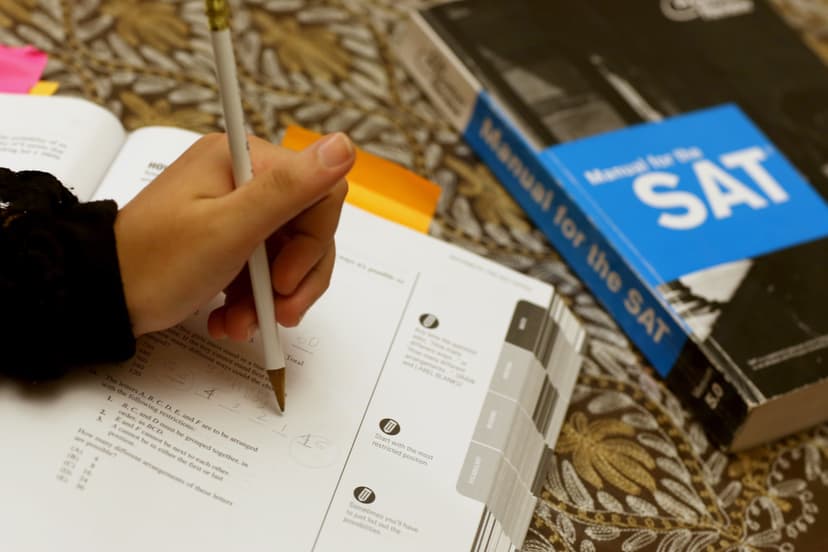Introduction
Studying abroad can be one of the most transformative experiences of your college career. Living in another country, immersing yourself in a different culture, and navigating unfamiliar systems builds adaptability, global awareness, and independence in ways that classroom learning cannot. Whether you're gone for a summer, a semester, or a full year, the personal and professional growth that comes from international education often shapes students' trajectories long after they return home.
Yet the prospect of studying abroad can feel overwhelming. Questions about costs, academic credit, safety, and logistics prevent many students from pursuing opportunities that could significantly enrich their education. Understanding what study abroad entails, how to select programs, and how to prepare will help you make informed decisions and have successful experiences if you choose to go.
Why Study Abroad
Cultural competence and global perspective are increasingly essential in our interconnected world. Living abroad develops your ability to navigate unfamiliar situations, communicate across differences, and see issues from multiple viewpoints. These skills matter in nearly every career field and enrich your personal life.
Language acquisition accelerates dramatically through immersion. Even with limited prior study, living in a country where you must use a language daily yields far more progress than years of classroom instruction. For language majors, study abroad is nearly essential; for others, it's an incredible opportunity to develop a valuable skill.
Career differentiation comes from international experience. Employers value the independence, adaptability, and cultural awareness that study abroad demonstrates. For some careers—international business, diplomacy, global health—international experience is almost expected. Even in domestic roles, global perspective enhances your contributions.
Personal growth through challenging yourself in an unfamiliar environment builds confidence and self-knowledge. You'll discover capacities you didn't know you had, form friendships across cultures, and create memories that last a lifetime. Many students describe study abroad as the most impactful part of their college experience.
"Travel is fatal to prejudice, bigotry, and narrow-mindedness. There is no substitute for breadth of experience."
— Mark Twain, Author and Traveler
Selecting the Right Program
Start by clarifying your goals. Are you primarily interested in language immersion, specific academic coursework, career preparation, cultural experience, or adventure? Different programs emphasize different aspects. Being clear about priorities helps you select programs that align with your objectives.
Consider timing carefully. Most students study abroad junior year, but some programs work better sophomore or senior year. Think about your major requirements, internships, research projects, and campus activities. Some majors make study abroad more challenging to fit in, but creative planning usually finds solutions.
Program types vary widely. Direct enrollment at foreign universities provides deep cultural immersion but requires more independence. Organized programs through third parties offer more structure and support but may feel more isolated from local culture. Exchange programs through your college often offer the best financial terms. Research options thoroughly.
Location matters but don't only consider traditional destinations. While London, Paris, and Barcelona are popular for good reasons, less common locations might offer richer cultural immersion, lower costs, and unique opportunities. Think broadly about where you might like to live and what you hope to experience.
Planning and Preparation
Start planning early—ideally a year before you want to go. Many programs have application deadlines 6-12 months in advance. You'll need to research programs, consult with academic advisors about credit transfer, secure passport and potentially visas, and arrange financing. This all takes time.
Financial planning is crucial. Study abroad can be expensive, but costs vary dramatically by location and program. Many forms of financial aid apply to approved programs. Scholarships specifically for study abroad exist. Some locations and program structures cost less than staying on campus. Research all options and don't assume study abroad is financially impossible.
Academic planning ensures your time abroad advances your degree progress. Work with your academic advisor to verify that courses will transfer and count toward requirements. Get pre-approval in writing for courses you plan to take. Understand grading systems and how they convert to your transcript.
Health and safety preparation includes getting appropriate vaccinations, understanding healthcare access abroad, registering with the embassy, and familiarizing yourself with local laws and customs. Your program should provide resources, but take personal responsibility for being informed and prepared.
Maximizing Your Experience
Step outside your comfort zone. It's tempting to cluster with other American students and recreate your campus social life abroad. While those connections provide important support, they shouldn't be your only relationships. Push yourself to engage with local students, attend local events, and participate in community life.
Travel thoughtfully during your time abroad. Exploring nearby regions enriches your understanding of the area where you're studying. However, prioritize depth over breadth. Students who travel every weekend often return feeling exhausted and disconnected from their host location. Balance exploration with immersion.
Document your experience through journals, photos, blogs, or videos. You'll appreciate these records later, and they help you process experiences as they happen. Share your experiences with family and friends back home, but don't spend so much time on social media that you miss being present where you are.
Embrace discomfort and challenge. Culture shock, homesickness, and frustration are normal parts of the adjustment process. These difficulties are where significant growth happens. Give yourself time to adapt, seek support when you need it, and trust that the uncomfortable moments are temporary and valuable.
Bringing It Home
Returning from study abroad brings its own challenges. Reverse culture shock catches many students off guard—your home suddenly feels foreign, and you may struggle to relate to people who didn't share your experience. This adjustment is normal and temporary. Stay connected with friends you made abroad and find ways to integrate what you learned into your life at home.
Reflect on how your experience changed you. What did you learn about other cultures? About yourself? About what you value and want in life? These insights shape your remaining college years and beyond. Consider how you can continue developing the global competence you started building abroad.
Study abroad is a significant investment of time, money, and emotional energy. Not everyone can or should study abroad, and that's okay. But for those who do, it often becomes a defining experience—one that broadens perspective, builds confidence, and creates connections across cultures. If you're considering it, investigate your options seriously. The opportunity to live and learn in another part of the world doesn't come along often. It might be one of the best decisions you make during college.



